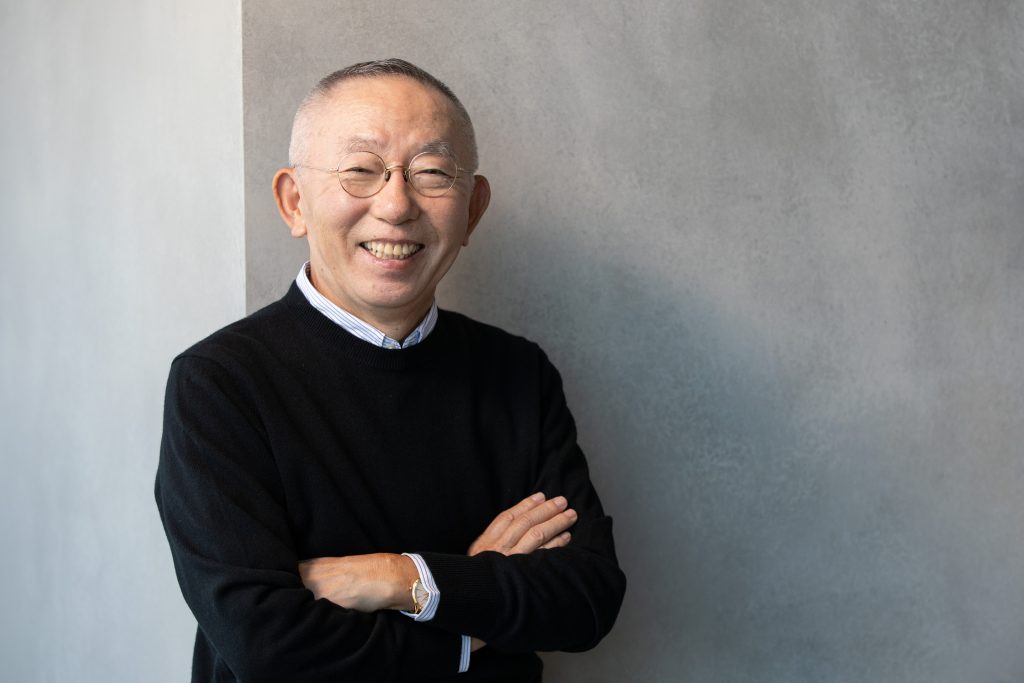- Home
- Billionaires
- Investing Newsletters
- 193CC 1000
- Article Layout 2
- Article Layout 3
- Article Layout 4
- Article Layout 5
- Article Layout 6
- Article Layout 7
- Article Layout 8
- Article Layout 9
- Article Layout 10
- Article Layout 11
- Article Layout 12
- Article Layout 13
- Article Layout 14
- Article Sidebar
- Post Format
- pages
- Archive Layouts
- Post Gallery
- Post Video Background
- Post Review
- Sponsored Post
- Leadership
- Business
- Money
- Small Business
- Innovation
- Shop
Recent Posts
Tadashi Yanai: The Visionary Behind UNIQLO’s Global Success | Richest person in Japan

Tadashi Yanai, the founder and president of Fast Retailing Co., Ltd., is a name synonymous with innovation and entrepreneurial excellence in the global retail industry. Best known for transforming a small, family-owned tailoring business into UNIQLO, one of the world’s largest and most influential fashion brands, Yanai’s story is a testament to the power of vision, perseverance, and adaptability. As of today, UNIQLO has become a household name, with stores in major cities across the globe, offering high-quality, affordable, and versatile clothing to millions of customers. Yanai’s journey is not just a narrative of business success but also an inspiring tale of strategic foresight and cultural adaptability.
Born on February 7, 1949, in Ube, Yamaguchi Prefecture, Japan, Tadashi Yanai was raised in a family deeply rooted in retail. His father owned a clothing store called Ogori Shoji, which primarily catered to local customers. After graduating from Waseda University in 1971 with a degree in Economics and Political Science, Yanai briefly worked for a supermarket chain before deciding to join his father’s business. It was during this period that he observed the inefficiencies and limitations of traditional retail practices. This insight laid the foundation for his innovative approach to fashion retail, which he would later implement with UNIQLO.
In 1984, Yanai took a bold step by opening the first UNIQLO store in Hiroshima. The name “UNIQLO” was derived from “Unique Clothing Warehouse,” and its concept was revolutionary for the time. Unlike traditional fashion retailers that focused on seasonal trends, UNIQLO aimed to provide high-quality basics that were both affordable and timeless. Yanai’s philosophy was to democratize fashion, making stylish and durable clothing accessible to everyone. This vision resonated with customers, and the brand quickly gained popularity in Japan.
What set Yanai apart as a leader was his relentless pursuit of excellence and his willingness to embrace change. Under his leadership, UNIQLO adopted a unique business model known as “SPA” (Specialty store retailer of Private-label Apparel), which integrates design, production, and retail under one roof. This model not only ensured cost efficiency but also enabled the brand to maintain strict quality control. Yanai also invested heavily in technology and supply chain management, allowing UNIQLO to respond quickly to changing market demands and customer preferences.
By the late 1990s, UNIQLO had become a dominant force in the Japanese retail market. However, Yanai’s ambitions extended far beyond Japan. In 2001, he initiated UNIQLO’s global expansion by opening the brand’s first overseas store in London. This move marked the beginning of UNIQLO’s transformation into a global brand. Despite initial challenges in understanding and adapting to foreign markets, Yanai’s persistence paid off. He emphasized the importance of cultural sensitivity and localizing the brand’s offerings to suit the preferences of international customers. This strategy proved successful, and UNIQLO soon established a strong presence in key markets such as China, the United States, and Southeast Asia.
One of the defining moments in UNIQLO’s history was its collaboration with renowned designers and artists. Yanai understood that to compete on a global scale, the brand needed to offer more than just basic clothing. Partnerships with designers like Jil Sander and Christophe Lemaire, as well as collaborations with pop culture icons and artists, elevated UNIQLO’s appeal and helped it attract a diverse customer base. These collaborations also reinforced Yanai’s commitment to innovation and creativity.
Tadashi Yanai’s leadership style is characterized by his hands-on approach and his emphasis on continuous learning. He is known for his meticulous attention to detail and his ability to anticipate market trends. Yanai believes that a successful business leader must always be willing to challenge the status quo and embrace change. This mindset has been instrumental in UNIQLO’s ability to adapt to an ever-evolving retail landscape. He has often spoken about the importance of humility, stating that one should never become complacent, regardless of past achievements.
Beyond his role at UNIQLO, Yanai is also a philanthropist and a vocal advocate for social responsibility. He has donated millions of dollars to disaster relief efforts and educational initiatives. Through the Fast Retailing Foundation, he supports programs aimed at addressing social issues such as poverty, education, and environmental sustainability. Yanai’s commitment to making a positive impact extends to his business practices as well. UNIQLO has launched various initiatives to promote sustainability, including the use of recycled materials, reducing waste, and ensuring fair labor practices throughout its supply chain.
Under Yanai’s leadership, Fast Retailing has grown into one of the largest apparel retailers in the world. As of 2023, the company operates over 2,300 UNIQLO stores globally and generates billions of dollars in annual revenue. Yanai himself is frequently listed among the wealthiest individuals in Japan, but he remains grounded, often attributing his success to his team and the values instilled in him by his family.
Despite his many accomplishments, Tadashi Yanai continues to look ahead. He envisions a future where UNIQLO becomes the most beloved brand in the world, known not only for its products but also for its contributions to society. His forward-thinking approach, combined with his unwavering dedication to excellence, ensures that he remains a pivotal figure in the global retail industry.
In conclusion, Tadashi Yanai’s journey from a small-town retailer to a global business magnate is nothing short of extraordinary. His innovative strategies, commitment to quality, and ability to adapt to changing market dynamics have cemented his legacy as one of the most influential leaders in the fashion industry. As UNIQLO continues to evolve and expand under his guidance, Yanai’s story serves as an enduring inspiration for aspiring entrepreneurs and business leaders worldwide.
- affordable fashion
- affordable luxury
- Aspiring Entrepreneurs
- attention to detail
- business strategy
- Business Success
- Christophe Lemaire
- Continuous Learning
- Corporate Sustainability
- cultural adaptability
- cultural sensitivity
- customer preferences
- designer collaborations
- disaster relief
- Economic impact
- Educational Initiatives
- Entrepreneurship
- fair labor practices
- fashion basics
- fashion innovation
- fashion legacy
- Fast Retailing
- Global Brand
- global expansion
- Global influence
- global retail
- high-quality clothing
- humility in leadership
- Innovation in Retail
- Japanese business
- Japanese entrepreneurs
- Jil Sander
- Leadership Style
- Market Trends
- modern fashion
- Philanthropy
- recycled materials
- retail challenges
- retail excellence
- retail industry
- retail technology
- Social Responsibility
- SPA model
- Supply Chain Management
- Sustainable Fashion
- Tadashi Yanai
- UNIQLO
- UNIQLO collaborations
- Visionary Leaders
Recent Posts
Categories
- 193 Countries Consortium Partner1
- 193cc Digital Assets2
- 5G1
- Aerospace & Defense48
- AI37
- Arts3
- Banking & Insurance11
- Big Data3
- Billionaires1,467
- Boats & Planes1
- Business332
- Careers13
- Cars & Bikes79
- CEO Network1
- CFO Network17
- CHRO Network1
- CIO Network1
- Cloud10
- CMO Network18
- Commercial Real Estate7
- Consultant1
- Consumer Tech194
- CxO1
- Cybersecurity73
- Dining1
- Diversity, Equity & Inclusion4
- Education7
- Energy8
- Enterprise Tech29
- Events11
- Fintech1
- Food & Drink2
- Franchises1
- Freelance1
- Future Of Work2
- Games149
- GIG1
- Healthcare79
- Hollywood & Entertainment203
- Houses1
- India’s 1000 Richest1
- Innovation46
- Investing2
- Investing Newsletters4
- Leadership65
- Lifestyle11
- Manufacturing1
- Markets20
- Media327
- Mobile phone1
- Money13
- Personal Finance2
- Policy569
- Real Estate1
- Research6
- Retail1
- Retirement1
- Small Business1
- SportsMoney42
- Style & Beauty1
- Success Income1
- Taxes2
- Travel10
- Uncategorized14
- Vices1
- Watches & Jewelry2
- world's billionaires1,436
- Worlds Richest Self-Made Women2
Related Articles
Antonia Ax:son Johnson & Family: A Legacy of Leadership and Sustainability
Antonia Ax:son Johnson stands as one of the most influential figures in...
By 193cc World's BillionairesMay 28, 2025The Life and Legacy of Roman Abramovich & Family
Roman Abramovich, a name synonymous with immense wealth, high-profile acquisitions, and global...
By 193cc World's BillionairesMay 28, 2025James Dyson: The Visionary Inventor Who Revolutionized Home Technology
James Dyson is a name synonymous with innovation, resilience, and engineering brilliance....
By 193cc World's BillionairesMay 28, 2025Brian Chesky: The Visionary Behind Airbnb’s Global Revolution
Brian Chesky, co-founder and CEO of Airbnb, stands as one of the...
By 193cc World's BillionairesMay 28, 2025















Leave a comment